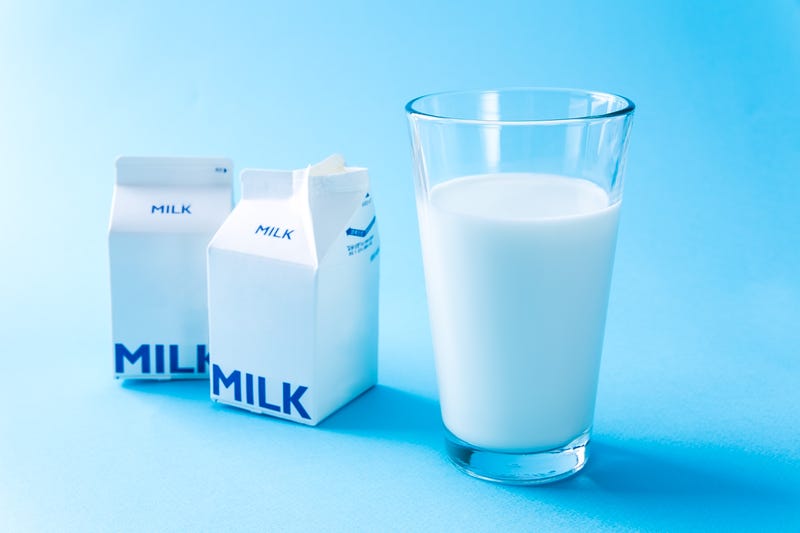
(WBEN) - The Rochester City School District on Monday released a tweet that stated that due to a nationwide shortage of milk cartons, the school is currently unable to supply students milk with their school lunches.
How has this happened? A representative from Upstate Niagara Cooperative tells WBEN that there have been reports that a leading facility that supplies most dairy farms with half-pint cartons for schools, are having "operational issues" and are having difficulty fulfilling orders.
The Upstate Niagara Cooperative dairy plant in Lancaster released the following statement:
"Unfortunately, a significant industry supplier of half-pint milk cartons is experiencing a shortage, which is having an impact on their ability to fully supply school milk carton orders. Our company continues to seek alternative solutions for our customers and we are in frequent contact with all potential vendors to try to solve this issue swiftly.
In the meanwhile, we have offered our customers half gallons of lowfat and fat free white milks, and lowfat chocolate milk to be poured into cups on site."
Michael Cornell, Superintendent of Hamburg Central Schools says he has heard a different story that has prohibited a factory from adequate supply.
"My understanding is that the factory that supplies most of the dairies with the cartons for school had a fire, and it's no longer functioning," said Cornell. "But it seems like at some point in the next 30 days, for some period of time thereafter, school districts may find themselves in a situation where they have to find a way to get the vote to the kids differently."
Although some districts have decided to not sell offer milk to students for the time being and our Western New York schools are not seeing an impact of the shortage just yet, most schools are looking for alternative ways to serve the milk to students.
Cornell assures students and parents of his district that they will continue to serve milk.
"We can still get it in gallon jugs, like you might find in the grocery store or we can have them sent to us that way, and then just find different ways to have it served in the cafeteria and what that looks like for a high school student will look different than it does for a kindergartener. We'll just have to try to adapt and figure it out."
WBEN reached out the Buffalo Public Schools and we received the following statement:
“While Buffalo Public Schools has not experienced a shortage because of chain issues at this point. To be prepared, we have established alternative ways to provide milk without cartons to minimize any possible disruption in the supply of milk in cartons. This may include using cambro containers at lunch for self-service with older students and using cups with lids for younger children. Buffalo Public Schools continues to monitor and work with our suppliers to determine the timing, duration, and scope of any anticipated disruptions to the supply chain.”
This is a national issue as on Tuesday, the United States Department of Agriculture released a memorandum that announces schools are authorized to provide alternatives in lunches if schools are unable to provide milk.
Cornell, who also serves as the President of the Erie-Niagara School Superintendents Association, mentions that schools over the years, especially through COVID, had to overcome a variety of obstacles and meet a number of regulations to ensure the safety and proper education of students. He and his fellow superintendents feel confident the will find an appropriate substitute for cartons should the problem arise in their schools.
"Talking to my colleagues around Western New York, we've had some conversation about it this morning, I think by and large superintendents feel pretty confident, that their food service directors and the staff in our cafeterias will be able to overcome the challenge quite well. Let's not forget we have food service directors in these roles, who are highly skilled in all aspects of food service and dealing with school lunch regulations."
